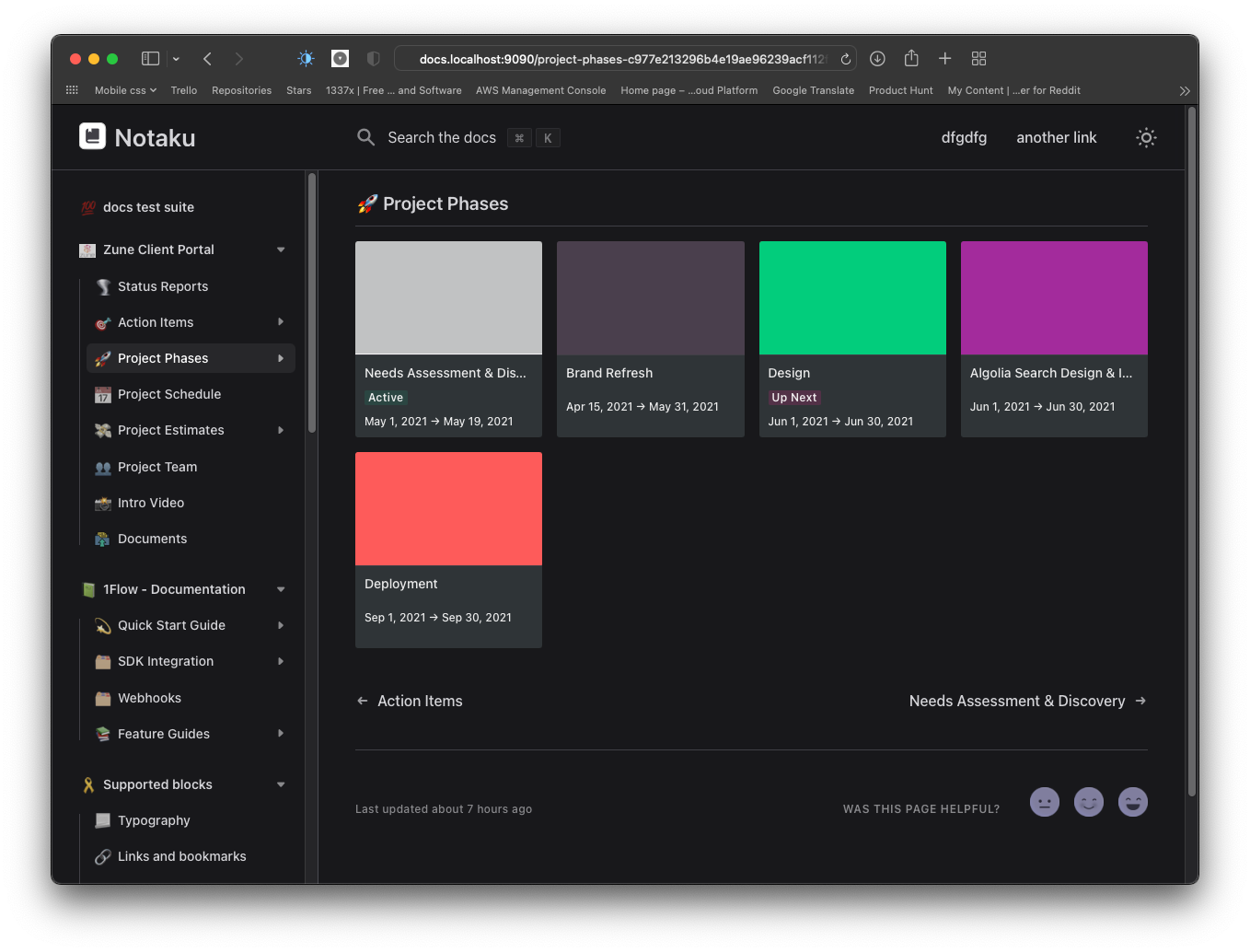Previously Notaku relied on the Notion signed urls to fetch files like videos and uploaded assets. Now Notaku stores these files in its own storage instead to make serving more reliable. Notaku uses Cloudflare R2 under the hood.
feature
7 months ago
You can now connect the official Notion integration to Notaku and automatically sync the website with every Notion update. Syncs should now be live in around 1 minute instead of 1 day like before.
To enable webhooks you can click the button in the dashboard, you will see a button to connect the integration, notice that you have to select all the pages you want to use with all your Notaku websites in the integration phase. The integration is one for all your websites in Notaku.
The old auto sync that was enabled once per day is now disabled because of stricter Notion rate limits.
feature
7 months ago
Websites should load much faster now, thanks to a migration from Vercel edge network to Vercel fluid compute.
fix
7 months ago
Previously Notion suggestions were appearing as content in the website, now this text is removed from the page.
fix
7 months ago
There was an issue from a recent update of the websites appearing as
id is required in getPagesNodesPath
This is now resolved. The underlying issue was caused by the edge runtime in the Next.js framework.feature
1 year ago
Blog websites can now be password protected
feature
1 year ago
All websites hosted on Notaku should load about 8 times faster on average, thanks to a migration from a data cache to a page HTML cache using stale-while-revalidate.
The cache is disabled when viewing your website in the Notaku dashboard so you can see the changes as soon as you make them.
When loading the website from another browser page you could see stale data for a few seconds, if you refresh the page you will see the latest changes.
feature
2 years ago
You can now keep your Notion page private when you enable the password feature, instead you can invite the user notion@notaku.site to let Notaku access your Notion page.
Notice that you still have to publish your Notion page when setting up your site for the first time, after enabling the password you can make it private and invite Notaku as a guest to your page.
feature
2 years ago
You can now change the Notaku websites UI with text in Korean. You can do it in the settings tab of your website.
feature
2 years ago
You can now change the UI language of your Notaku website, you can do this in the settings tab of the Notaku dashboard.
You can also change the UI language differently for every version of your Notaku website, for example if you have different version for each language.
Current available languages are English, Spanish, French, German, Italian, Japanese and Simplified Chinese.
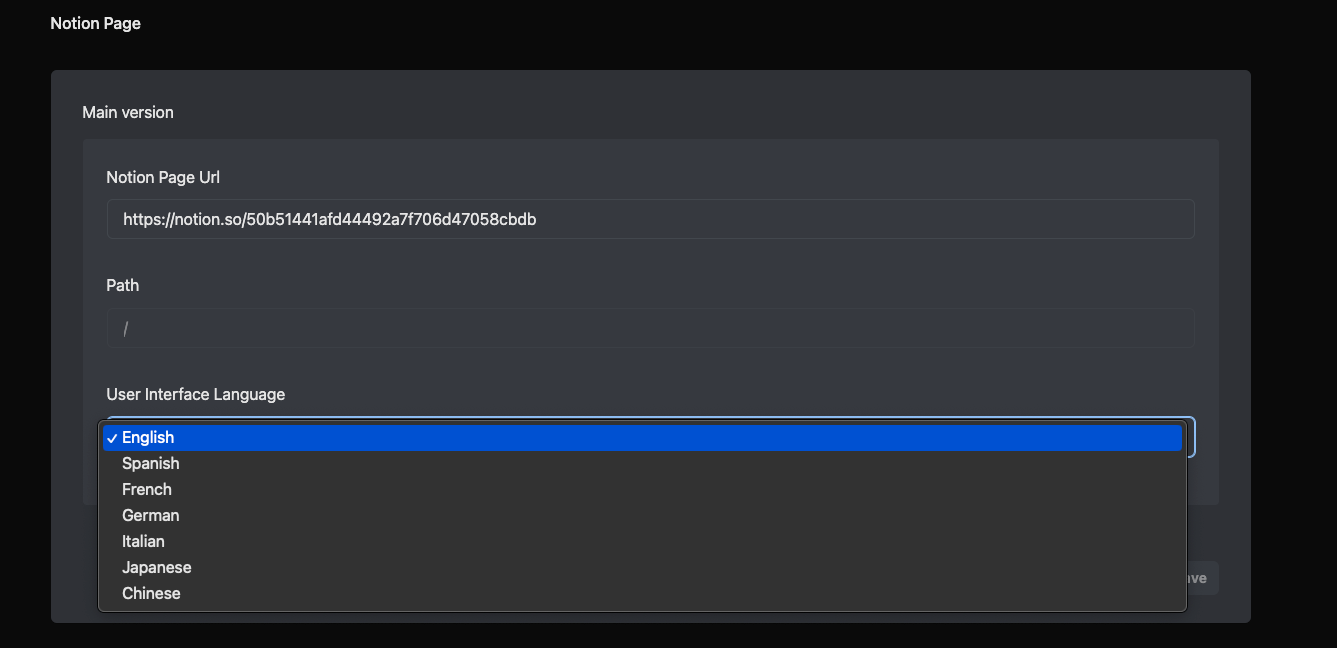
feature
2 years ago
Notaku has now a new analytics tab, you can enable analytics for a monthly add-on.
Analytics available are
- Unique visitors
- Visitors countries
- Page views
- Average visit time
- Bounce rate (when user visits only one page)
- Visitors devices
- Visitors sources (the site they came from)
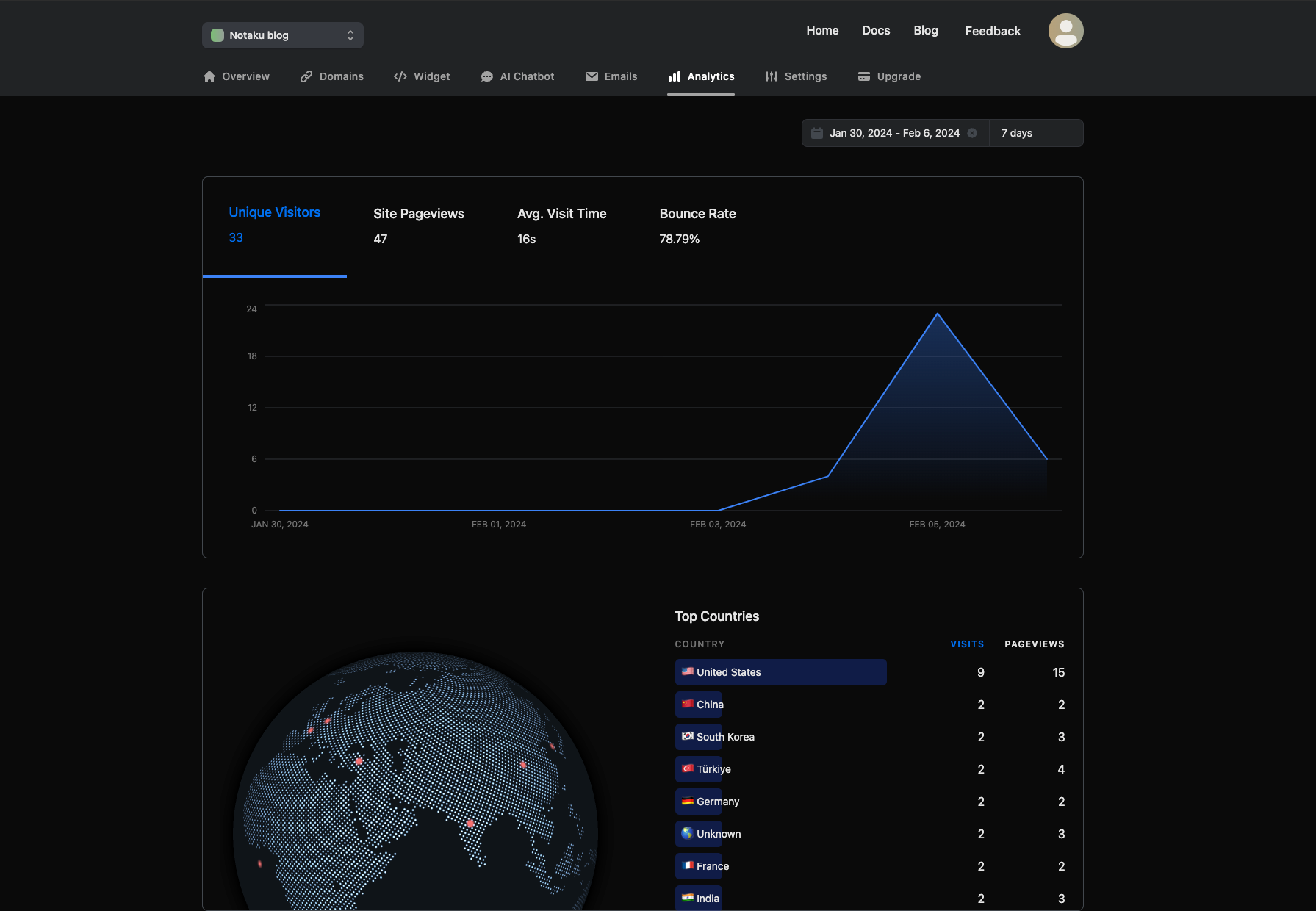
beta
feature
2 years ago
Ask AI and Semantic Search are now available for a monthly add-on. You can enable it in the “AI Chatbot” tab of your Notaku dashboard.
When AI is enabled Notaku will train a Chatbot on your website content and users will be able to ask it questions. You can try it at notaku.so/docs:
- Click the search button
- Choose “Ask AI”
- Ask a question, for example “What is Notaku?”
There is also a new option called “semantic search”, this let’s you search your website content using vector search, you can search content using synonyms and concepts.
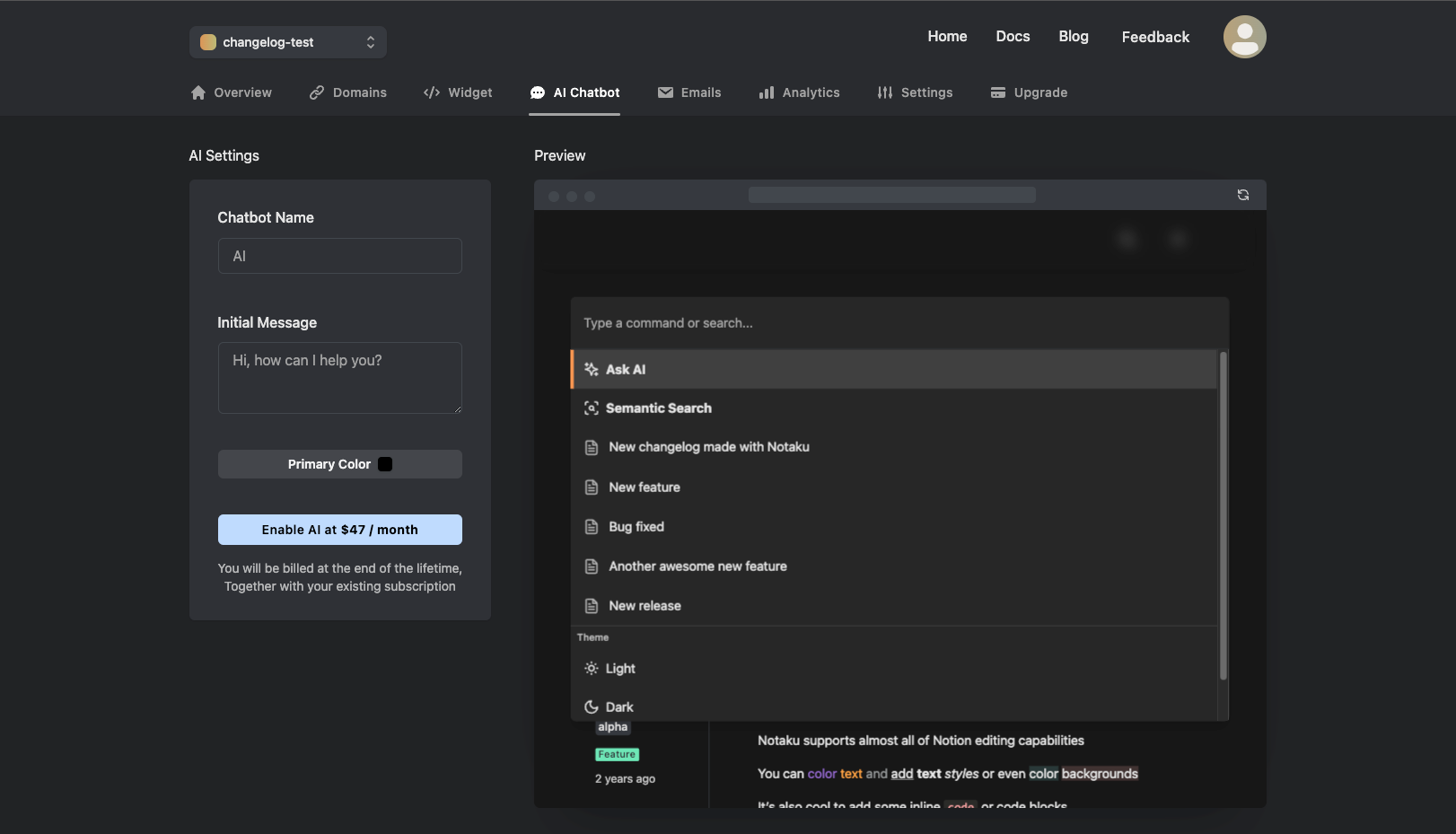
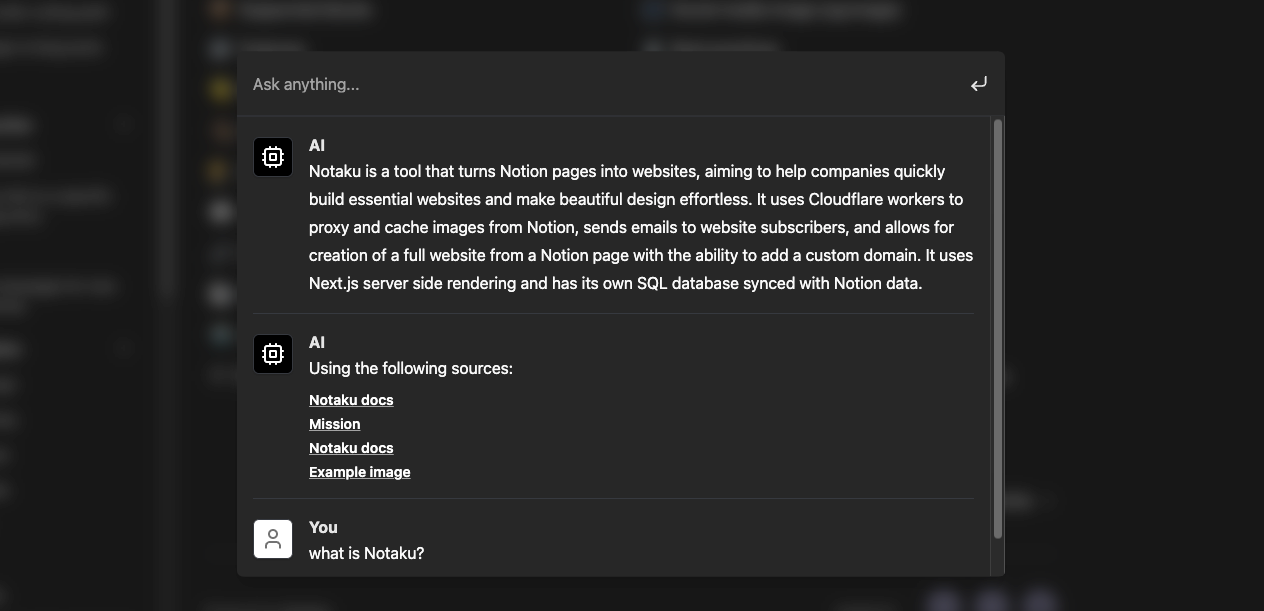
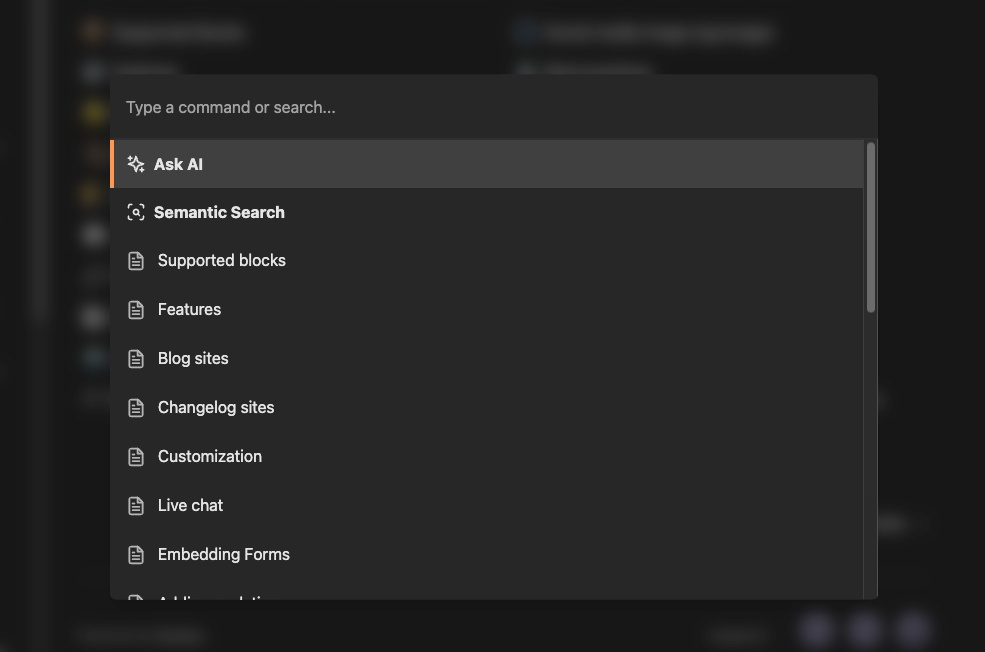
feature
2 years ago
Notaku dashboard will navigate you to your last created website, this should make it faster to do common actions like trigger a sync.
The new site creation process has also been remade. If you have feedback please let me know in the Notaku live chat.
fix
2 years ago
The auto sync feature was set to run every 10 minutes last week but it caused issues with the Notion API. A better approach would be to sync only when Notion content changes, this approach will be used as soon as Notion API adds webhooks support
fix
2 years ago
There was a bug where bold text was corcing the color to be gray in some cases, fixed in latest release
feature
2 years ago
Business and Business plus plans now sync every 10 minutes instead of 1 hour.
feature
2 years ago
Improved the OG images shown on social media like Twitter.
These images will use the page title and description (in case of docs websites it will use the first text paragraph as description).
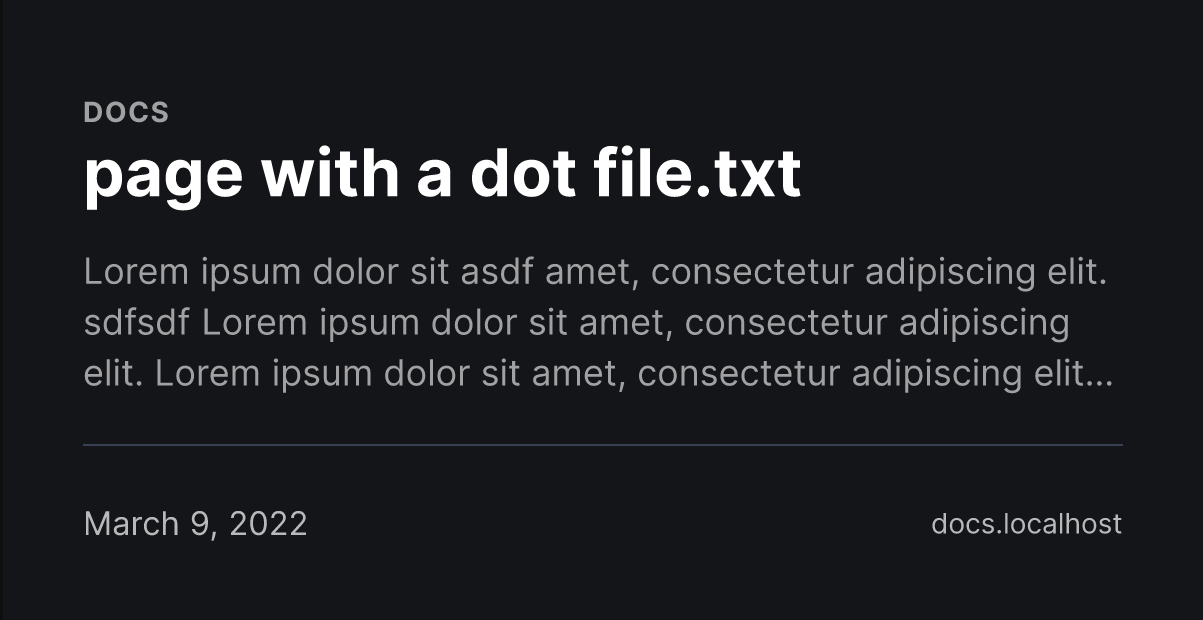
fix
2 years ago
The RSS feed was using
notaku:tags as an XML tag but XML parsers interpret this as a parsing error, it has been renamed to notaku_tagsfeature
2 years ago
- Added the blog post description under the main heading
- Added the title “Related posts” above related posts
- Made the author image bigger
- Added the tags filter in the index page
feature
3 years ago
A new landing page with more features and new design has been published
If you have feedback let me know with the live chat widget.
feature
3 years ago
Business plans websites have full text search enabled.
You can search for words in paragraphs, callouts, code and lists.
Search is still not enabled inside columns and other block types
fix
3 years ago
There was a bug where overflowing forumlas were not centered in the page like in Notion.
3 years ago
Today there was a problem with our main website caused by testing code pushed to prod by error 😬
Everything is back to normal now.
Lesson learned: never push to prod on sundays
feature
3 years ago
Notaku is no longer using Twitter embeds (iframes) to show Tweets, instead it’s using a faster alternative that should still support all previous features.
fix
3 years ago
Previously sitemap.xml was not including paths from other sites versions
fix
3 years ago
Some equations blocks were not working because of missing features of the Latex rendering engine, now fixed.
fix
3 years ago
Notaku previously was sometimes using a different order than Notion for the docs sidebar. This issue should be fixed now.
feature
3 years ago
You can now add comments to your blog website using Disqus
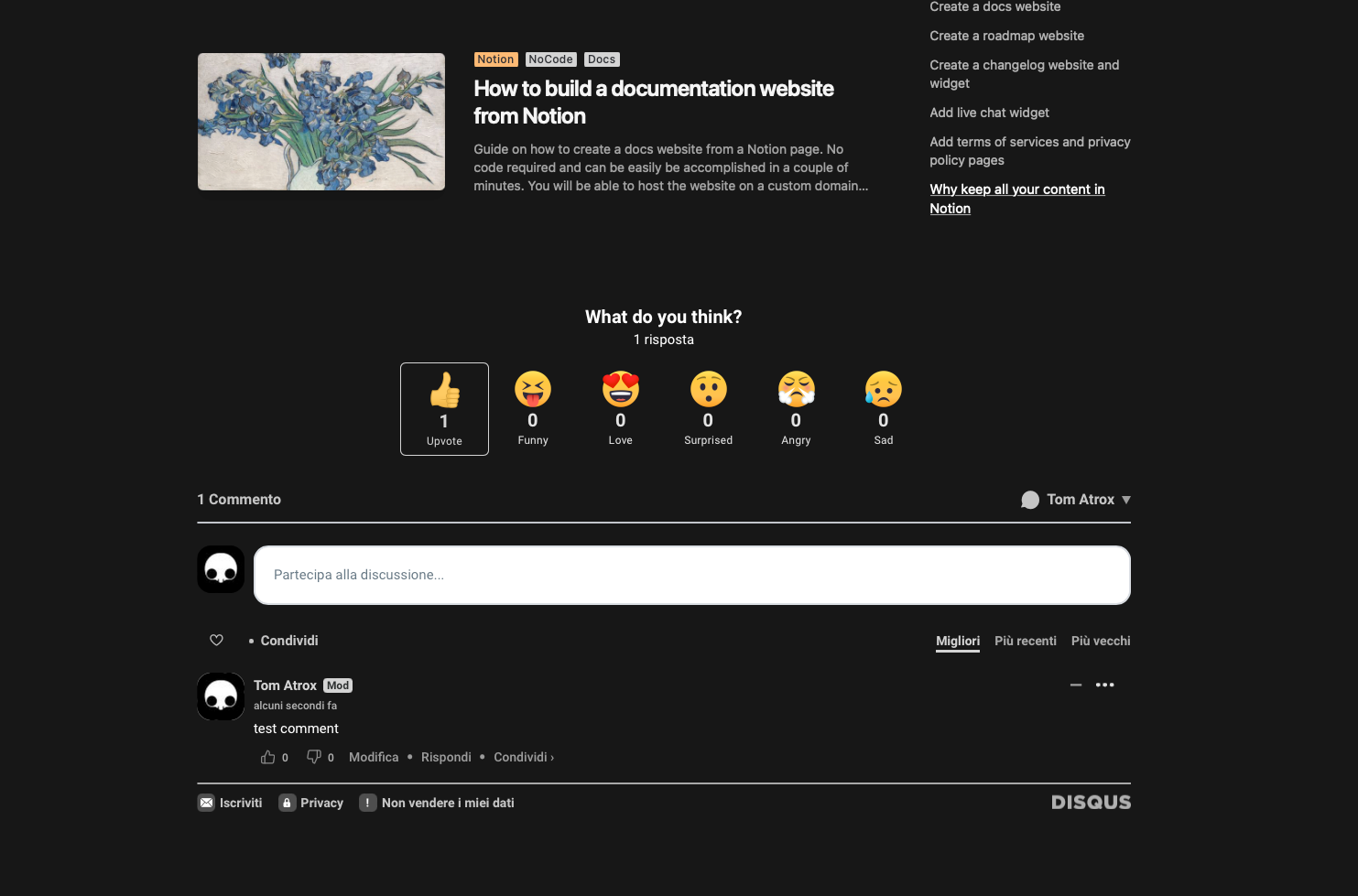
fix
3 years ago
Some embeds had the wrong aspect ratio, now Notaku should use the same width and height as Notion
feature
3 years ago
Now Notaku uses Cloudflare KV as a store for all your website images, with a time to live of 7 days.
Previously it was only using regional cache. This means that your images will load faster for a first time visitor in a region where the website is visited for the first time.
beta
feature
3 years ago
Notaku will use the filtered and ordered database items for blog and changelog websites.
3 years ago
New showcase page at notaku.so/showcase
If you have more sites you would like to see on the showcase let me know on Twitter!
beta
feature
3 years ago
Users can now leave text feedback together with an optional email on your pages. You can see the feedback on your dashboard.
Later Notaku will send a weekly summary emails with
- Most loved pages
- Most hated pages
- Text feedback left on your pages
- Total page views
- Most viewed pages
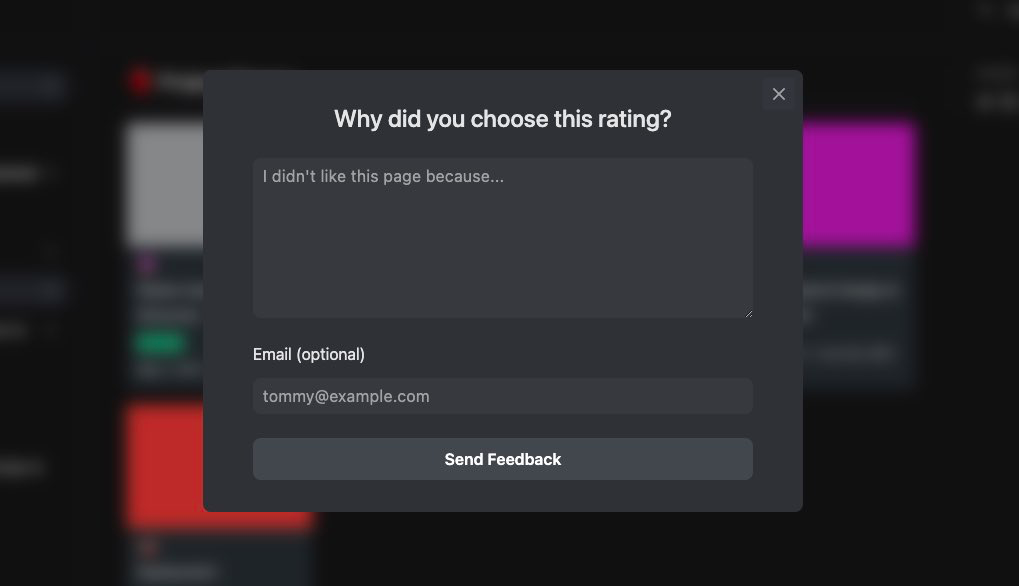
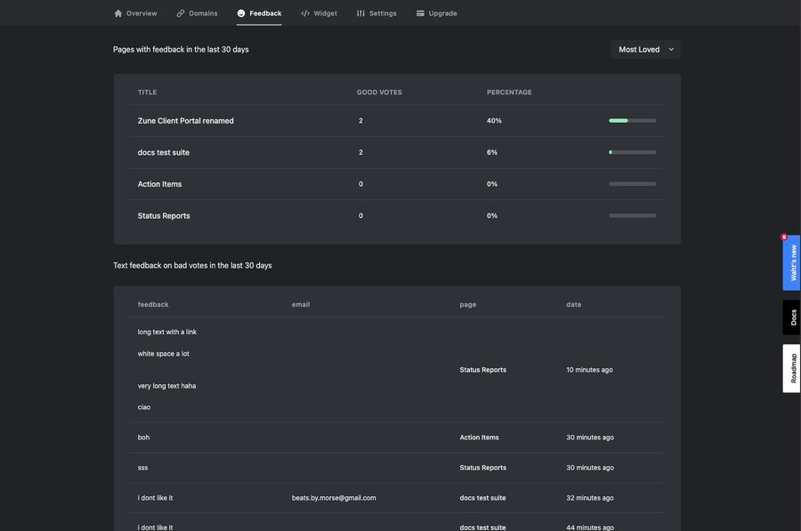
fix
3 years ago
Tweets were no longer showing because of a Twitter API change, now Notaku is using the official Twitter widget.
beta
feature
3 years ago
You can now add multiple languages and versions to your help desk websites. Users can change the website content using the select input.
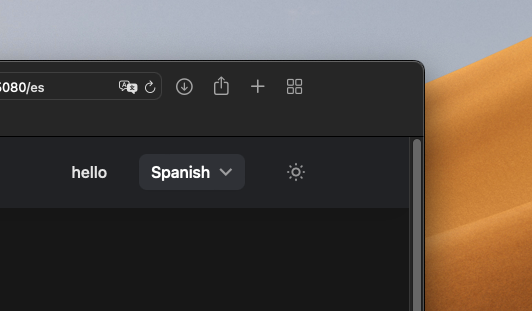
beta
feature
3 years ago
Notaku changelog, blog and roadmap website now have built in email collection.
Notaku will send weekly digest emails to subscribers about new blog posts, new changelog features and roadmap changes.
To enable this feature you need the $49 plan.
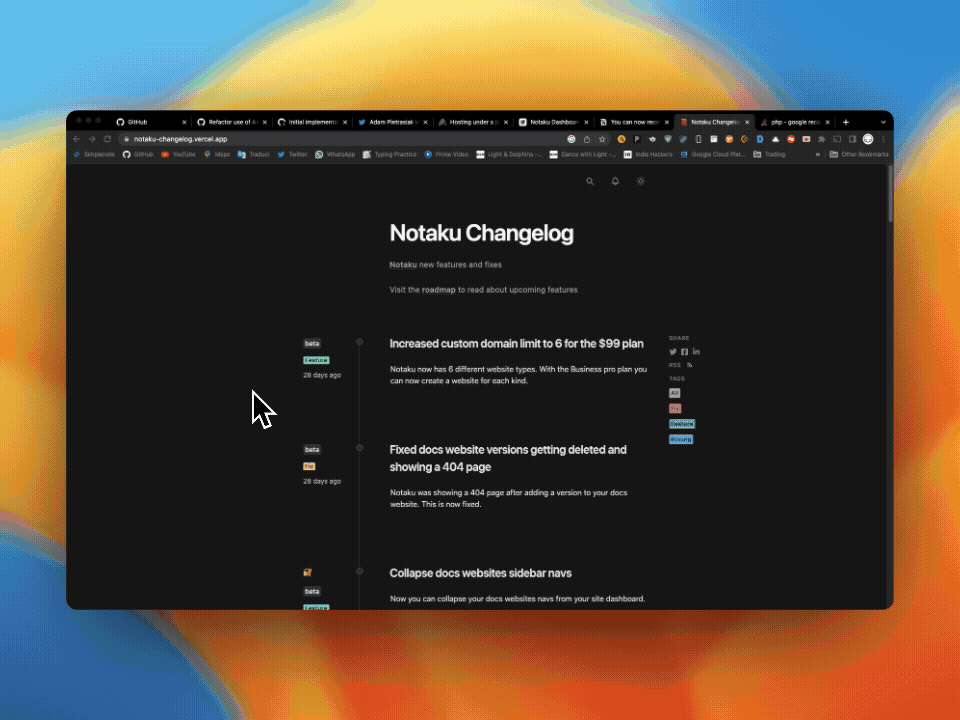
feature
fix
3 years ago
Notaku websites are now hosted on the edge, making cold start times much faster (the first time you visit a website page).
Previously cold start times were slow and could vary from 1 second to 4 seconds. Now it should stay below 600ms.
The page rendering for changelog and blog websites has been improved too in case you have a lot of content in the page.
feature
3 years ago
You can now enable full width for your Notaku websites.
We've added a toggleable full width mode in the Overview tab. With this, you can make sure your website looks great on all devices. To enable full width mode, simply toggle the switch in the Settings tab. Enjoy!
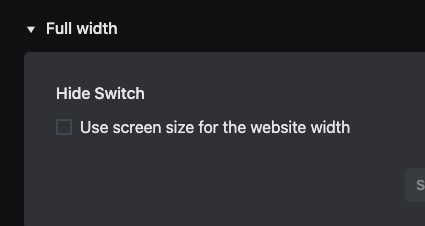
beta
feature
3 years ago
Notaku now has 6 different website types. With the Business pro plan you can now create a website for each kind.
beta
fix
3 years ago
Notaku was showing a 404 page after adding a version to your docs website. This is now fixed.
beta
feature
3 years ago
Now you can collapse your docs websites navs from your site dashboard.
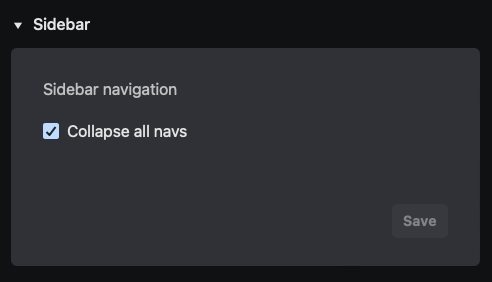
beta
fix
3 years ago
There was a bug where the description of your blog index page was not rendering links and text styles. It is now fixed.
feature
3 years ago
Widget sidebar now has a link to the full page website.
The widget script has a CDN cache of 2-3 hours so you may need to wait a bit to get lates changes.
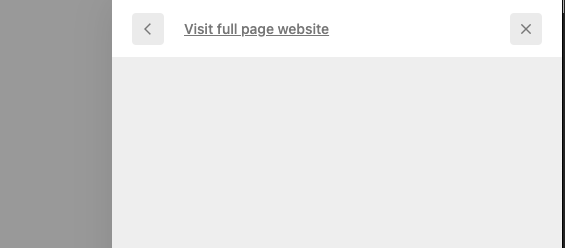
feature
3 years ago
You can now disable the widget when visiting your website on mobile.
On mobile phones there isn’t much space so it’s sometimes better to not show the widget buttons in that case.
3 years ago
Fixed a bug that made animations sluggish in certain cases (Safari specifically has very low frame rate)
beta
fix
3 years ago
Blog websites now have a smaller font size for blog titles when in mobile.
Also added other little improvements to the tags filter in the index page and removed the line at the end of the website.
beta
feature
3 years ago
You can now filter changelog entries with a tag filter on the right.
beta
feature
3 years ago
You can now use rich text on your blog, changelog and changelog websites descriptions.
You can add links, bold text, colored text and more.

beta
feature
3 years ago
Notaku can now create help desk websites.
You can now use Notaku as an Intercom alternative and host all your content in Notion.
Help desk sites use a Notion table database as source page.
If you have some feature requests for help desk websites feel free to chat with me with the live chat on notaku.so.
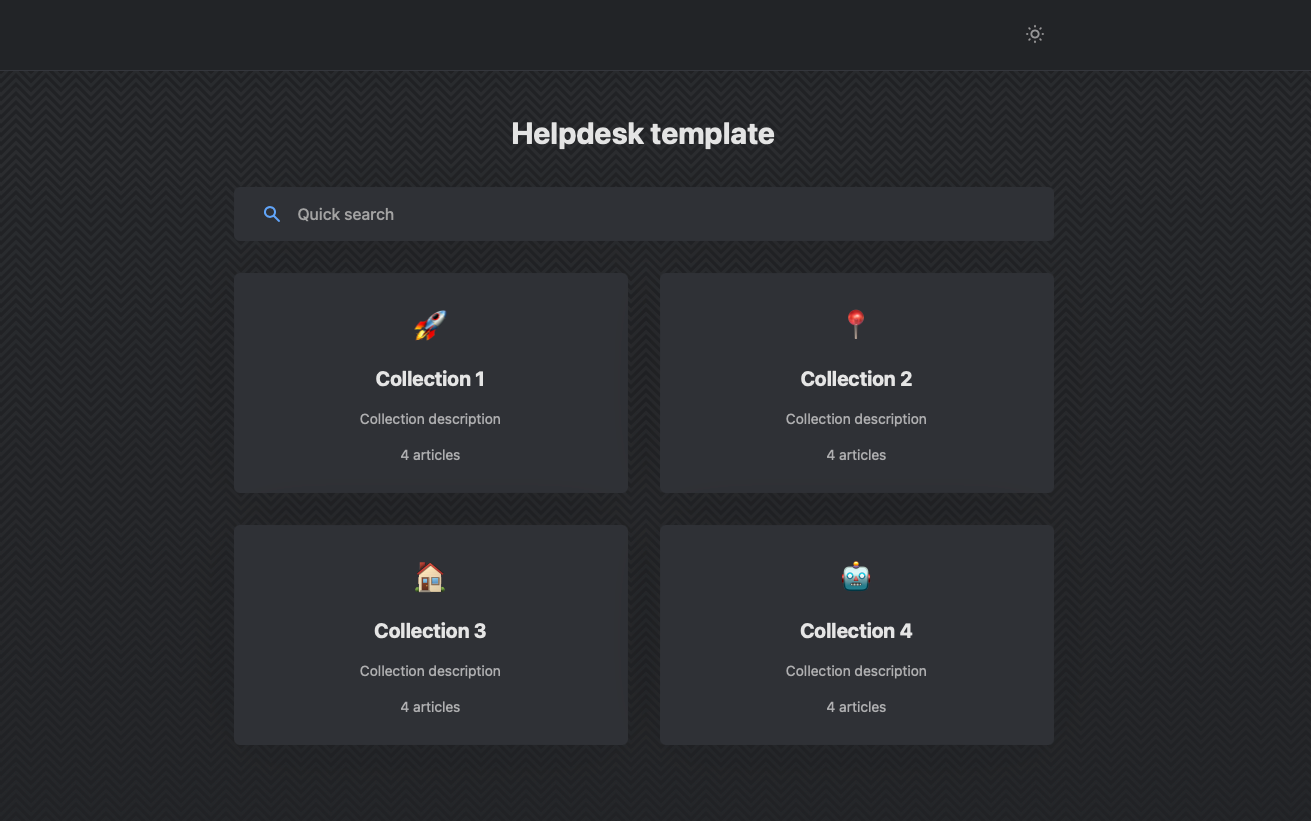
beta
fix
3 years ago
New websites using database for CMS will consider the first item in the database as the most recent one.
This means that the first item in the database will be your first blog post/changelog entry in your website.
You can get this behaviour for older websites disabling the “reverse database order” in your site settings.
beta
feature
3 years ago
You can now create your roadmap website and widget with Notaku and Notion.
This website type is still in beta and there may be changes to the Notion database fields used and its general design.
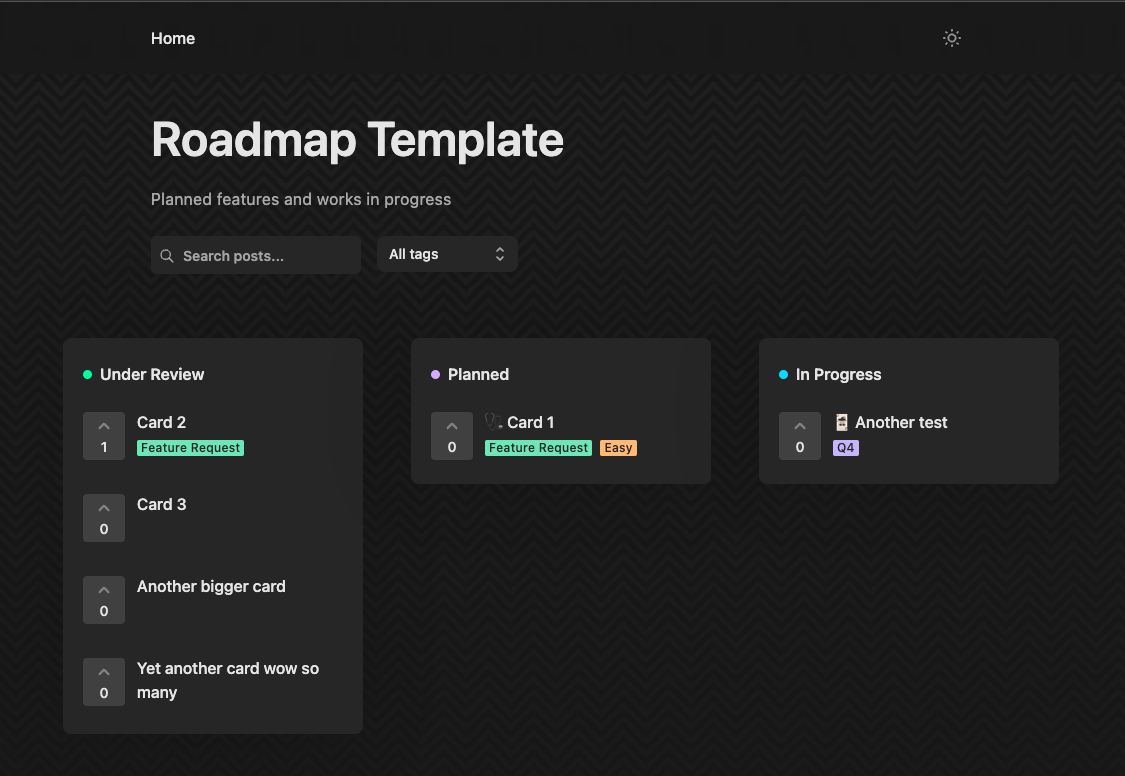
beta
feature
3 years ago
New websites will have the most recent items at the top.
Previously most recent items would be at the bottom of the database.
Now you can use the “new” button on the right to create new items in the database.
beta
fix
3 years ago
The widget back button was affecting the parent page history in some cases (when you navigate both in the widget and the parent page).
This issue should be fixed in latest release.
beta
feature
3 years ago
You can now customize your website background using a pattern background design
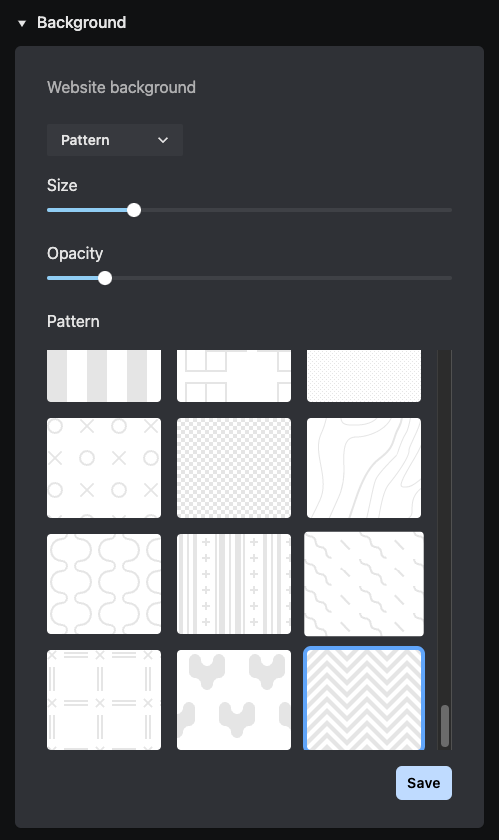
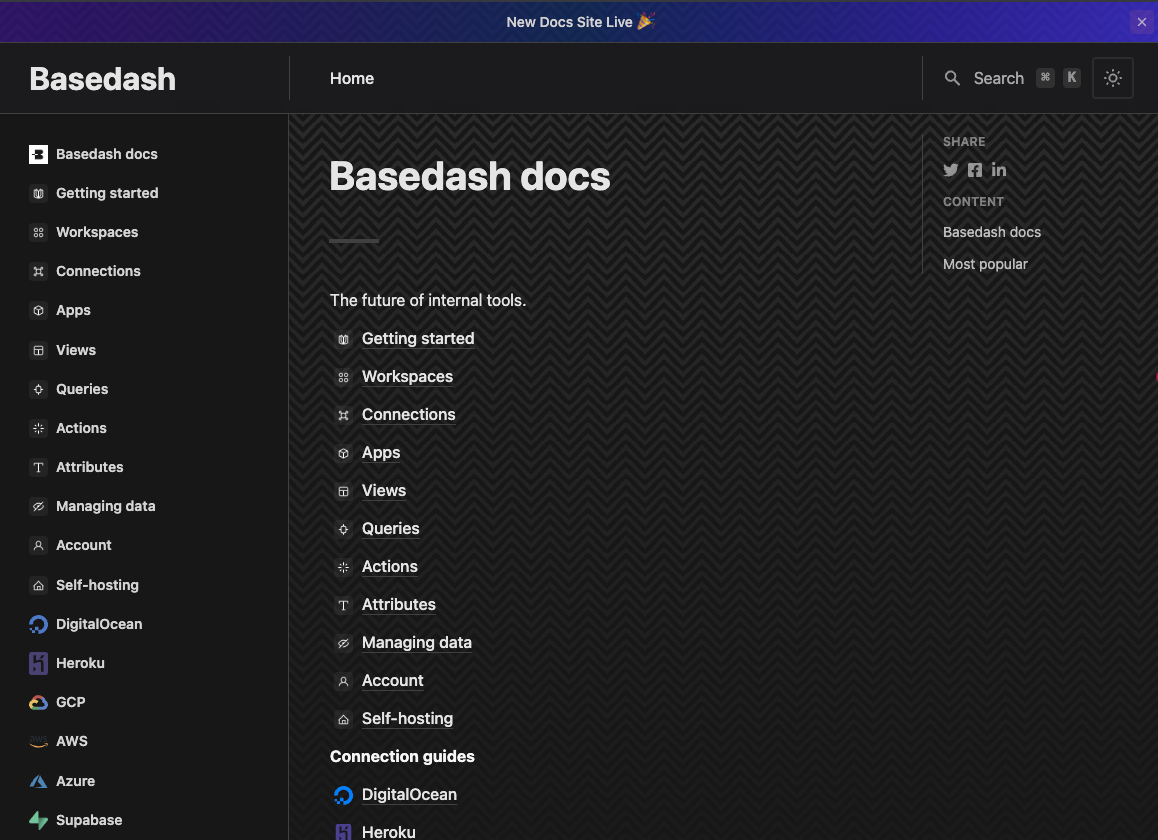
beta
Pricing
3 years ago
You can now tweet about Notaku to get 1 month free of your subscription 🙂
To get the discount send a message in the live chat with the tweet link.
beta
feature
3 years ago
The dashboard will show you links of pages outside of your root Notion page.
Notaku only syncs pages that are inside your connected Notion page, this is to prevent syncing your entire workspace by adding a link to a page by error.
This warning will help you make sure all links in your website work correctly
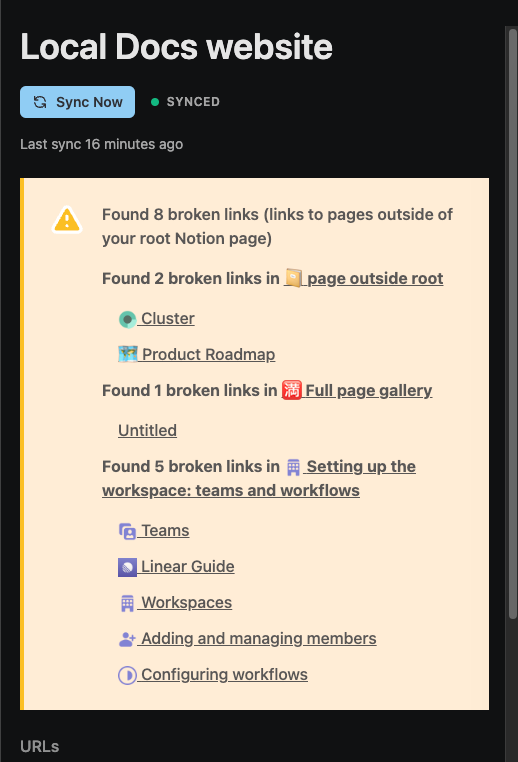
beta
3 years ago
Notaku has now migrated to the new Vercel domains API.
Previously if another user had already registered a domain on another service using Vercel (like super), it would cause an error and you would need to remove the domain from the service first.
Now you can add an additional TXT record to prove you own the domain.
Notaku will send an email when domain is configured
Notaku will send you an email when the website will be available on your domain.
beta
feature
3 years ago
Now there is a sort of “analytics” for page views in the usage tab.
If you want to have more in depth analytics for a page i suggest using a more extensive tool like Splitbee or Google Analytics (you can use the “inject code” feature to add it).
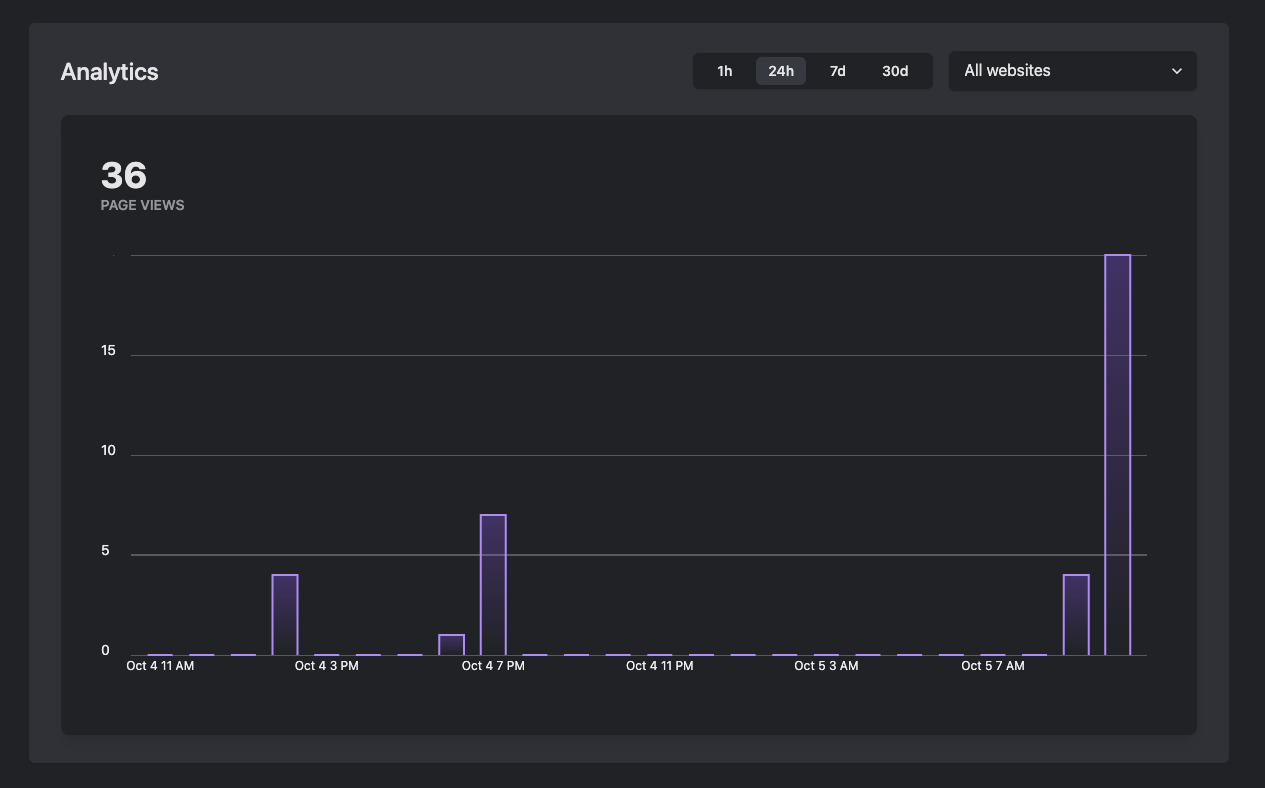
beta
feature
3 years ago
Now you can change the widget sidebar width.
If the screen size is smaller than your given width, the widget will cover the full screen size.
beta
feature
3 years ago
Now you can change your website initial color mode or remove the color mode switch completely if you want
beta
fix
3 years ago
Password protected websites were not working in the preview window inside the dashboard
This was because to set cookies inside an iframe you need som specific paramters (
samesite=None and secure=true)beta
feature
3 years ago
I made a new tool to be launched on ProductHunt this Saturday 🚀
This new tool let you create image links for Notion using an embed block.
You can already try the tool here.
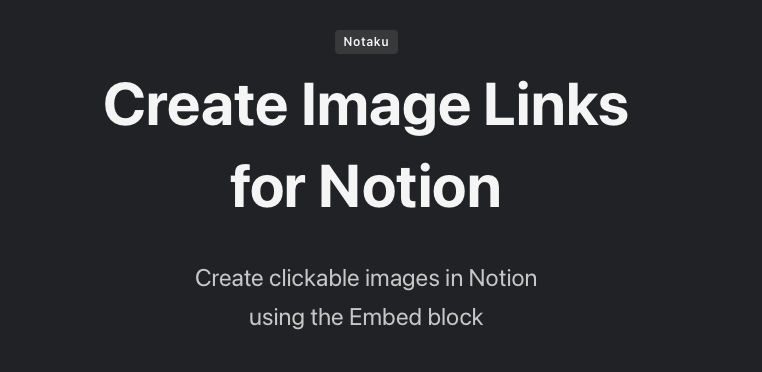
The main objective of these little tools is acquire new customers and make people talk more about Notaku.
I would be super glad if you can help Notaku with an upvote on the ProductHunt post this Saturday!
beta
feature
3 years ago
Added option to hide a site from search engines, useful for example for “in progress” websites.
The option is in the SEO section of your website dashboard.
beta
fix
3 years ago
Some specific code blocks were causing the page to crash.
This bug has been fixed in latest release (thanks to an upstream fix from prismjs).
beta
feature
3 years ago
Now you can search your Notaku sites and find the site you are looking for faster.
beta
feature
3 years ago
Docs and changelog sites now can have widgets
Widgets are a way to embed your Notaku sites on other websites, showing the content in a sidebar
There is also a small badge on changelog sites widgets showing the number of changes since the user last opened the widget.
feature
3 years ago
You can now change the UI and content fonts
Notaku will use the google fonts urls for this configuration, you can use any Google font available
3 years ago
You can now use your own affiliate link in the “Powered by Notaku” link
This means that you can earn 30% of people that subscribe to Notaku using your website link
beta
feature
3 years ago
Docs websites will show the search button on the right
Links are now on the center
The background color of the sid navigation is now a more cool gray
The header now has a bigger shadow
beta
feature
3 years ago
If you are migrating an existing website to Notaku you can now setup 301 or 307 redirections for existing paths
This feature is in site settings.

beta
feature
3 years ago
Docs websites can now show a version or language switch on top left
This switch will change the current Notion page, this means that you can add new pages for versioning or for translations
beta
feature
3 years ago
Docs websites now will use the first 4 text blocks (or less, trying to make the descrition long 160 characters) as meta description.
This should improve SEO for docs sites.
beta
Pricing
3 years ago
The Notaku plans now have limits on the number of Notion pages you can sync per site.
The limits will be effective starting from 12 September.
If your site has more pages than your limit some pages will not be synced.
beta
feature
3 years ago
Notaku now will send an email when you connect a site for the first time.
This can be useful when you connect a very heavy Notion page that can take several minutes to sync.
beta
feature
3 years ago
Changelog and blog websites RSS feeds now have a publication field using the date property or the Notion page creation date.
I will also later add
- Version (changelog)
- Tags
- Icon
beta
feature
3 years ago
Blog and changelog website now have a search icon in the header to search your changelog entries.
The search button now is shown on mobile too for docs websites.
beta
feature
3 years ago
You can now align embeds and images left, center and right
beta
feature
3 years ago
Notion supports a new icon type that has different colors in dark and light mode
It’s also nicer than always using emojis
beta
fix
3 years ago
There was a bug with the sidebar tree nodes opening and closing, it is now fixed (requires a triggering a resync with Notion)
beta
feature
3 years ago
Notaku will use the database description for websites that have it.
beta
fix
3 years ago
A recent Notion api bug made the title used in blog and changelog sites wrong, using a stale value.
beta
feature
3 years ago
The site dashboard layout now shows the site customization as default page, the customization tab has been removed.
The sync events block has been removed.
Features that need a subscription will now open up the subscription modal instead of showing an error.
New users will see the new site modal open by default.
fix
3 years ago
Blog posts cover were not shown in the latest release. Now fixed with a refactor of the Notion syncer.
beta
feature
3 years ago
It’s now possible to password protect simple layout websites.
beta
fix
3 years ago
This release contain some minor bug fixes
Fixed bug on “clone customization” feature
It was not possible to use clone customization on any sites, now fixed
Fixed mobile layout of changelog sites
Mobile layout was overlapping headlines elements
All websites use larger images by default
The default image size is now the same as Notion, previously it was capped at 800px to make requests faster, but since Notaku now has its own CDN it’s now possible to use larger images
Faster search with sites that have a lot of pages
The search results in one query is now capped to 20 results
Notion syncer now handles up to 1000 images for site
Notion syncer memory size has been increased and already tested with sites that have more than 700 images (sync time is around 1-2 minutes)
beta
feature
3 years ago
Now you can customize the colors of the top banner of you website
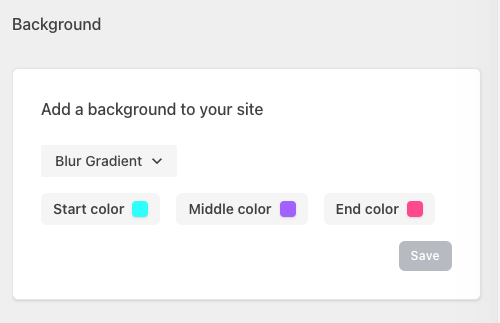
Site backgrounds
You can now add custom backgrounds to your sites.
For now the possible backgrounds are dots and gradient.
In the future you will be able to upload your own image too.

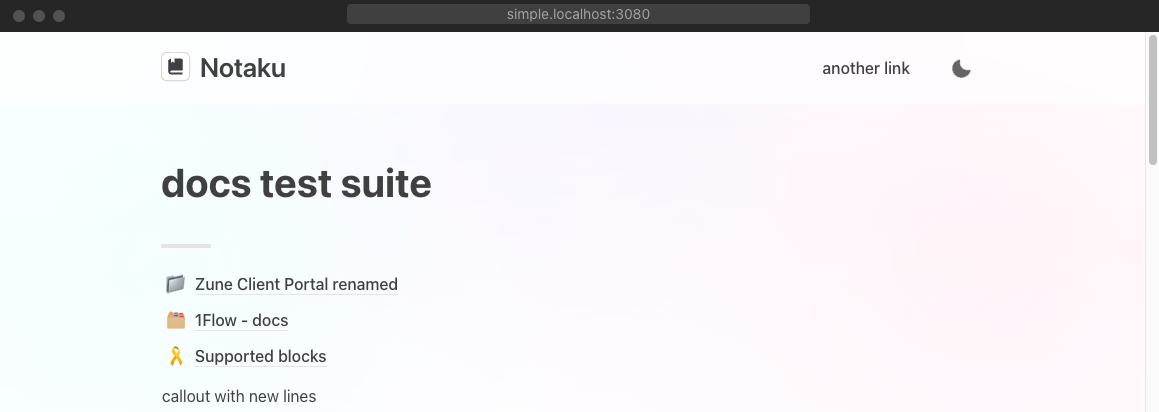
Fix og images for changelog and blog index pages
beta
feature
fix
3 years ago
Clone customizations form other sites
You can now quickly copy the settings from another site
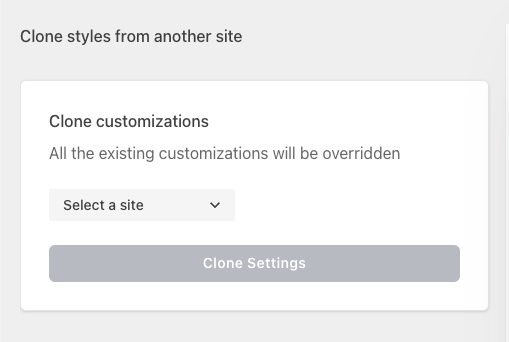
Single page websites
Notaku can now creates simple layout websites, these are useful to quickly create terms and policy pages for example.
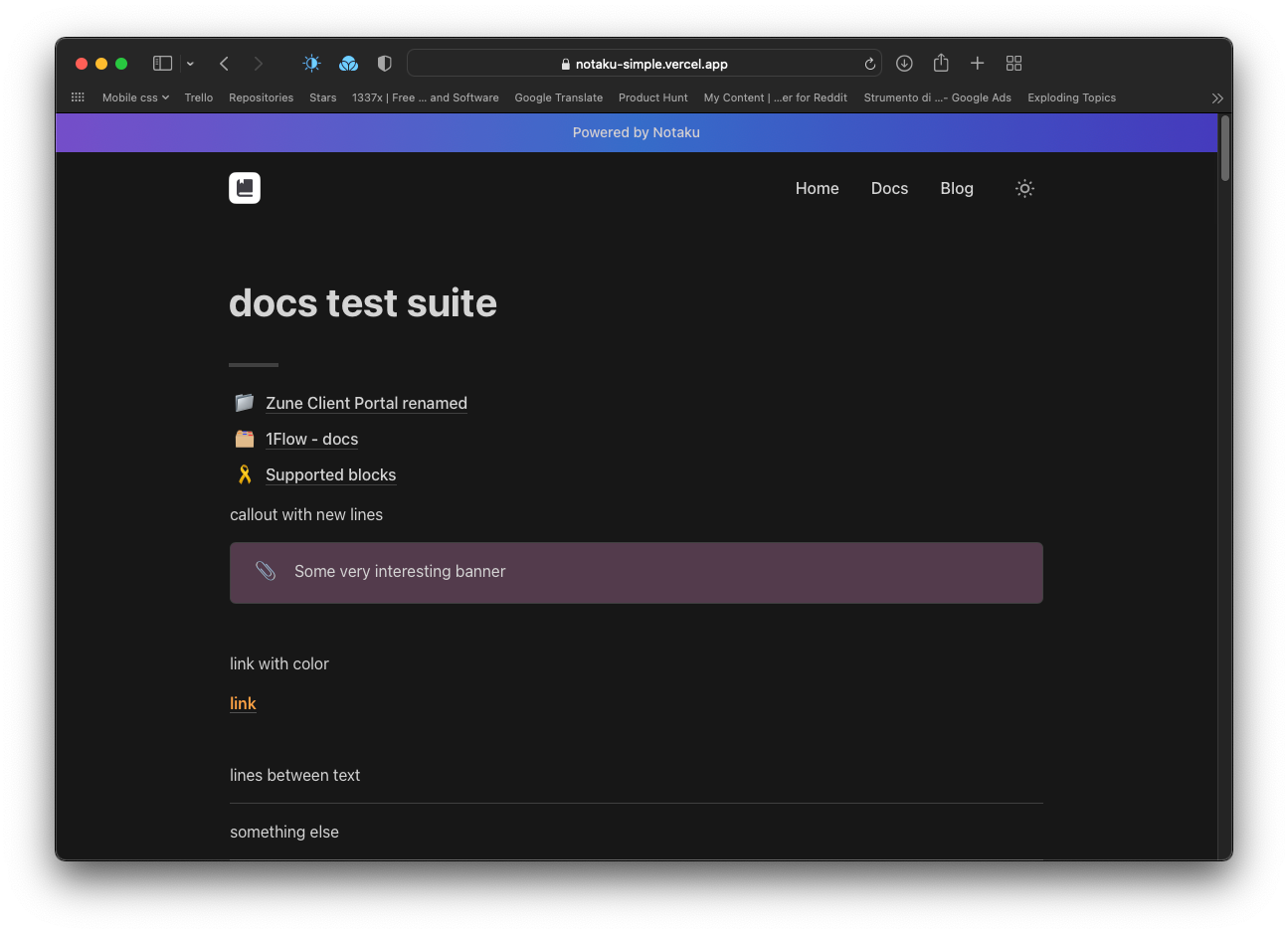
RSS for blog and changelog sites
Notaku now exposes an RSS feed at
/rss.xml.This feed can be used to create automations to send an email for new posts for example, using nocode services like Zapier.
Faster images speed
Notaku now uses cloudflare workers to cache images from Notion, this makes average image download speed 300ms (after first fetch) compared to Notion at 1 second
beta
feature
fix
3 years ago
Simple footers
Now you can choose a simpler footer type for your websites
The simple footer is just a list of links in a row

Sticky header in blog and changelog
The header will remain after you scroll.
Blog post images
The blog index page will show images for your blog posts.
The images are gradients generated from your page title by default (same way as og image).
To customize the blog post image add a page cover in Notion.
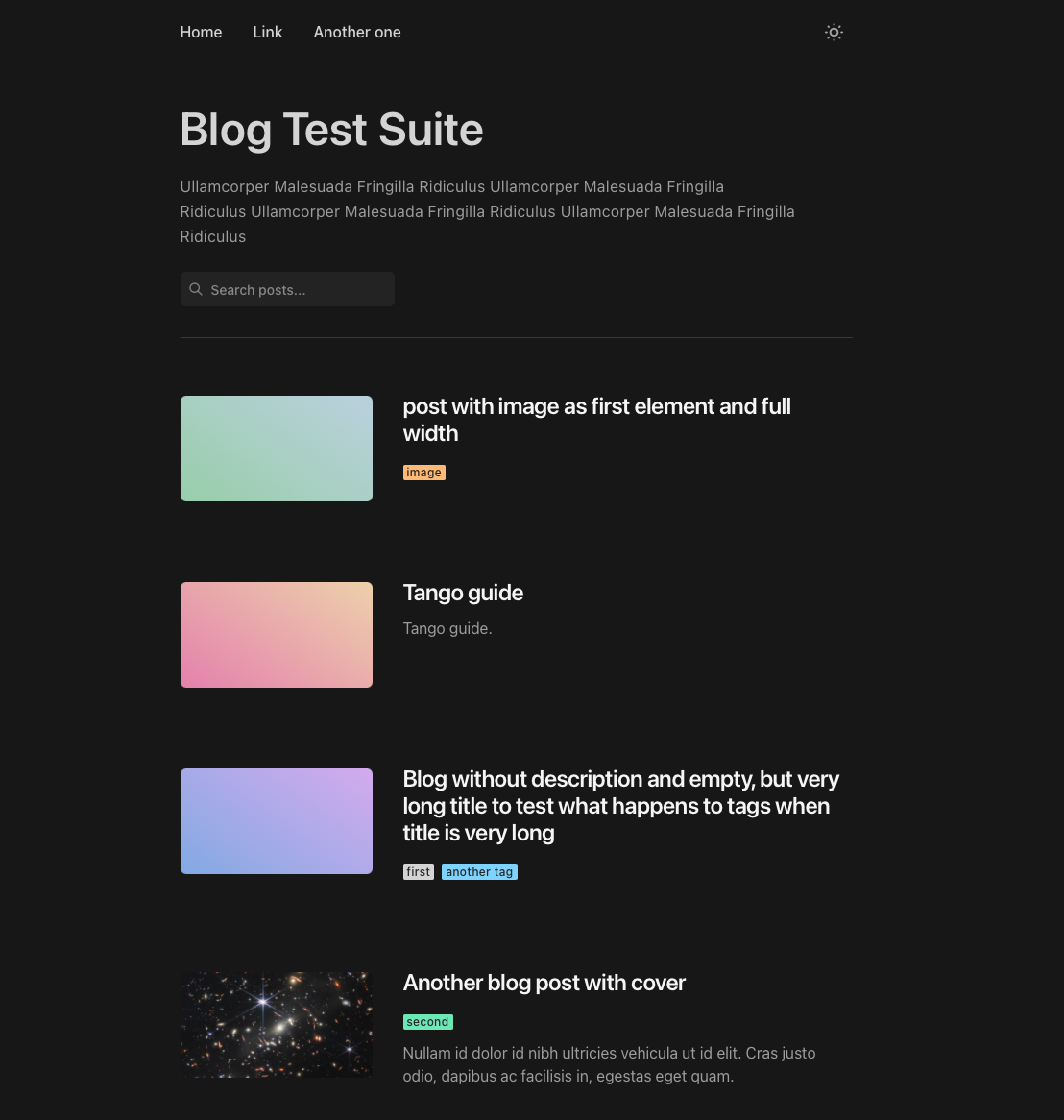
Added blog related posts
Every blog post will show 3 related posts at the bottom.
The related posts will be chosen based on the number of common tags.
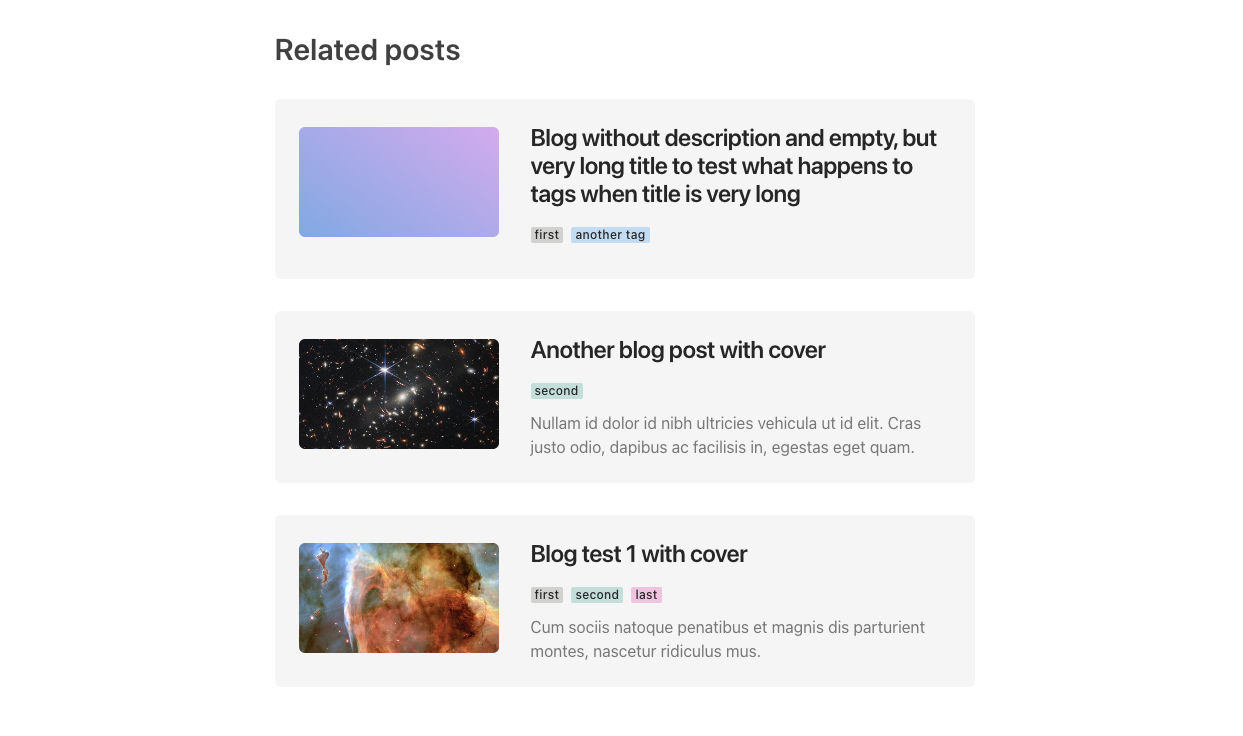
Description for blog and changelog index pages
Now the sites index pages will have a description customizable in dashboard.
Docs site search improvements
The search bar design has been improved and it’s also faster
Added preview in customization tab
You can now see the preview of your changes in the customization tab
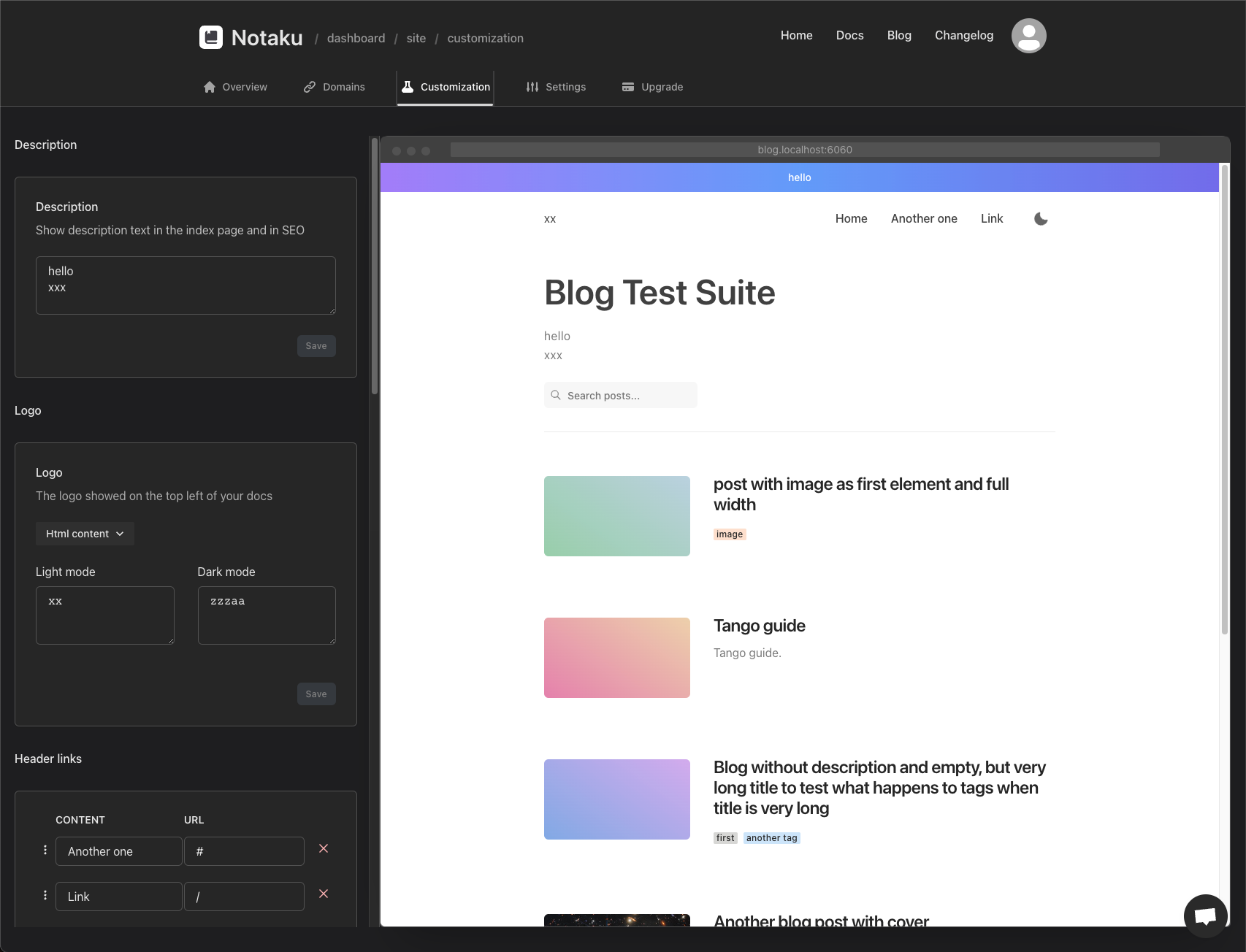
Fixed a bug in changelog website not hiding hidden entries
Improvements of the alpha GitBook importer
I have also worked on improvements on the Gitbook to Notion importer, mainly to try and completely convert the Raycast developer site so i can offer them Notaku as an alternative
Now the converter supports Gitbook tables and expandables.
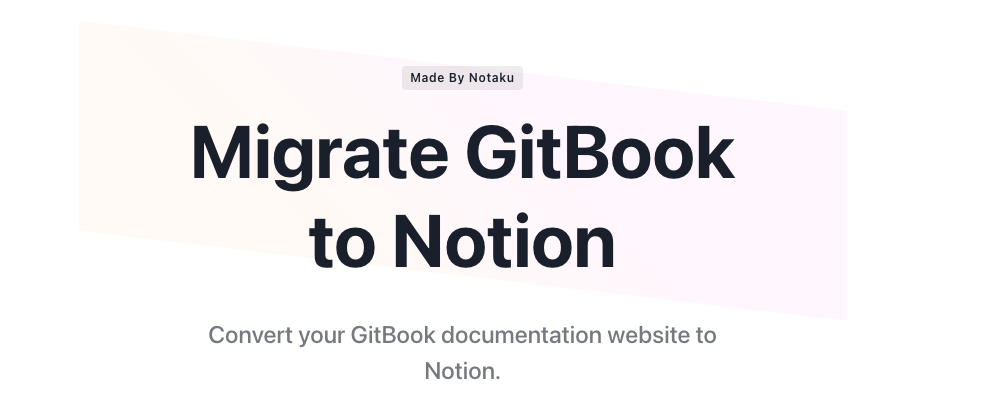
beta
feature
fix
3 years ago
You can now login to Notaku using email (this has been requested from users from countries where Google is blocked).
If you try yo login with the same email as an existing registered Google account the account will be linked.
This release includes other fixes and small features:
- If user has multiple subscriptions, the user’s limits will be merged to have the less strict limits from all subscriptions (this has been done for supporting upsells)
- Fixed the DNS status in domains page
- Redesign of landing pages
- Show user limits in dashboard settings
- More robust e2e tests (you can expect zero bugs in dashboard from now on 😉)
beta
fix
3 years ago
- Added description meta tag in blog websites
- Fixed 500 error on /usage page when user has no sites
- If user has multiple subscription always use the limits less strict limits
- Show date on the right of blog posts, show “back to other posts” above the h1
- Implemented more e2e for the dashboard
beta
feature
3 years ago
You can now invite users to your website and collaborate.
The billing will be connected to the admin user. Non admin users cannot delete the website but can perform other changes.
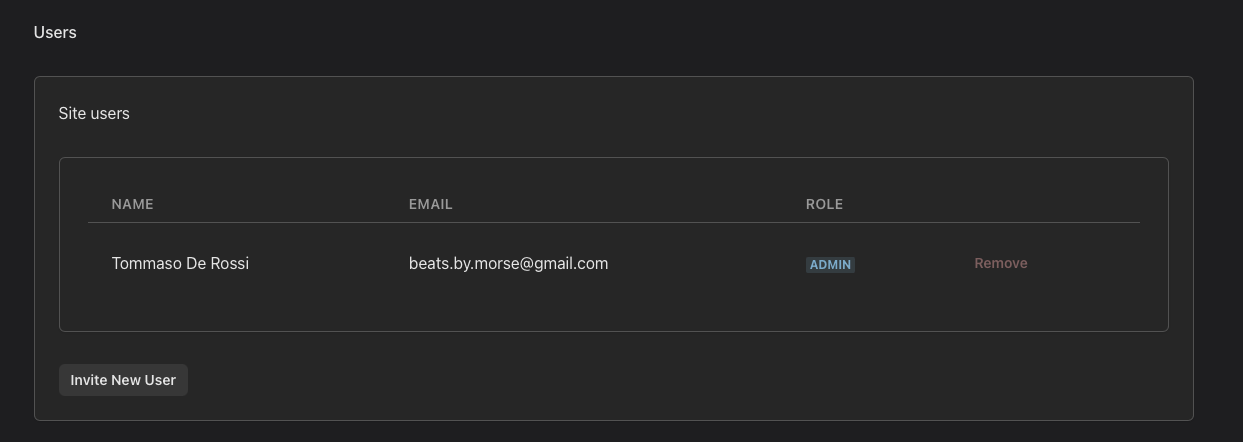
beta
feature
3 years ago
Docs and blog website will show a table of contents on the right where you can click a title to create an anchor link that points to that specific part of the document.
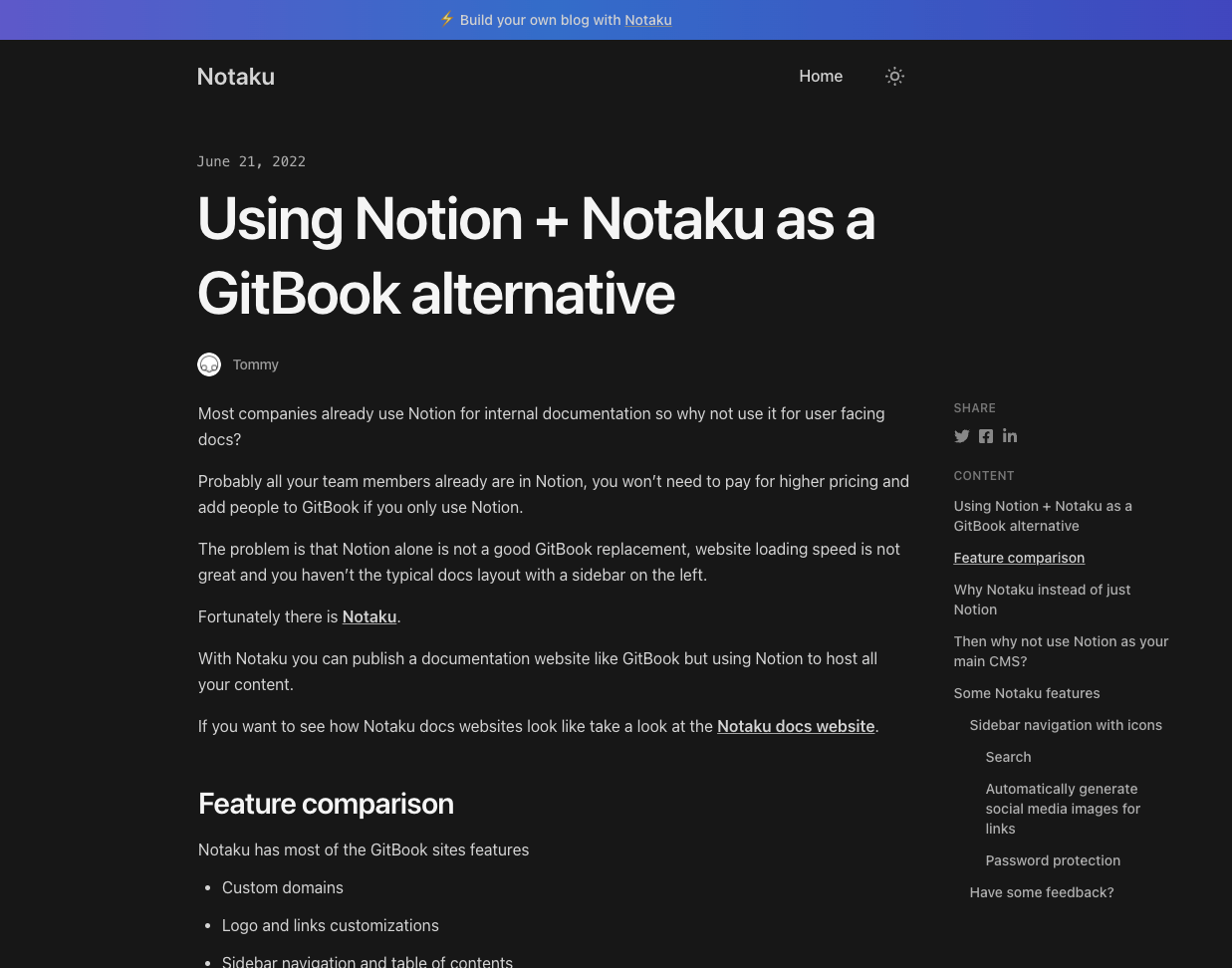
beta
feature
3 years ago
Share buttons help get your websites shared on social media and get more traffic.
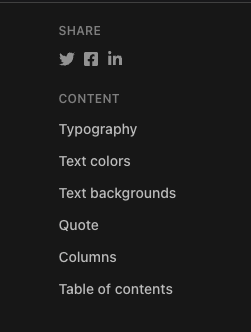
beta
feature
3 years ago
Notaku will now use Notion page icons for browser tabs if there is no custom favicon in custom settings.

beta
3 years ago
Notaku now can use page titles for the urls and doesn’t need to append an id at the end.
To enable this behaviour you have to change it in your site settings.
beta
3 years ago
Notaku will use the
authors prop of the source Notion database to show the post authors on top of the blog post page.
beta
3 years ago
Not Notaku blog websites will use the date field in the Notion database as the blog creation date.
Previously it was only using the page creation date.
beta
3 years ago
Notaku will generate a social media image (og image) for all docs and blog websites.
Notaku will use the Notion cover image if present
The auto generated image looks like this
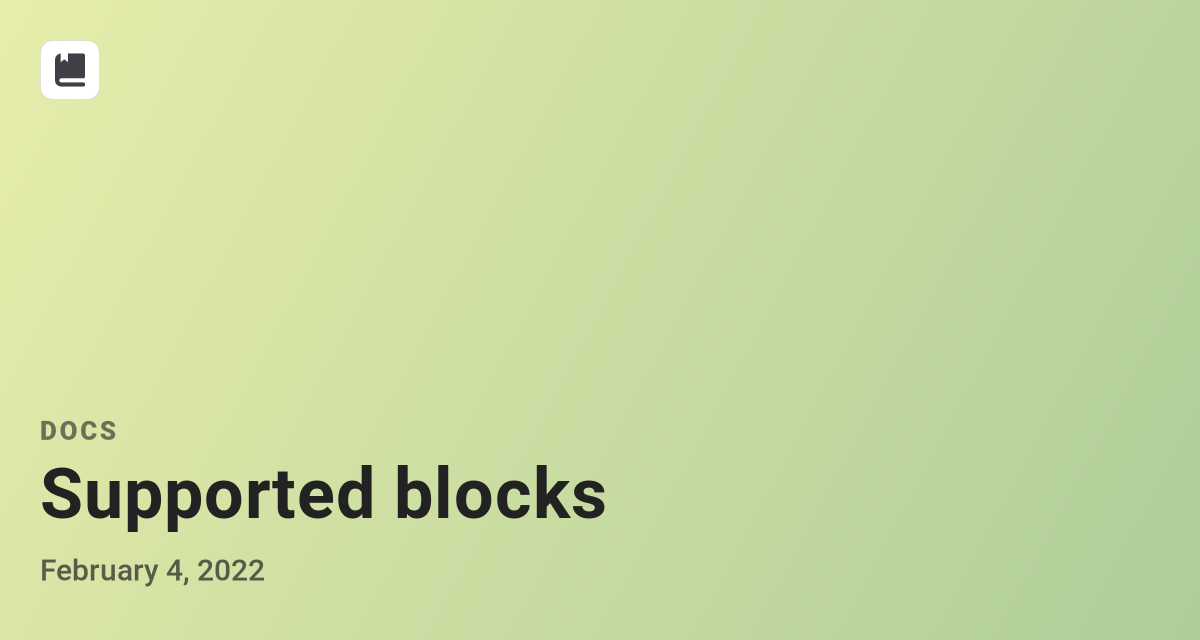
beta
3 years ago
Auto sync copies the Notion data every hours to our databases, this caused costly server costs because of the many new free websites added to Notaku.
This feature is now enabled for Pro users only.
To sync a free website you can click on the “Sync now” button.
beta
3 years ago
The Notaku dashboard is now deployed on fly.io, previously the dashboard initial loading times were as slow as 3 seconds because of serverless functions cold starts.
Now the dashboard is much faster because there are no more cold starts and the servers are always running.
I am now working on making the same migration for the hosted websites to reduce the initial loading times.
beta
4 years ago
Changelog websites are now available on Notaku.
You can use them with any subscription, no need to pay anything new.
This type of site is perfect to document changes to your product and notify your users.
I also plan to add a twitter integration to tweet every time a new changelog entry is created, let me know if you think this is a good idea on twitter
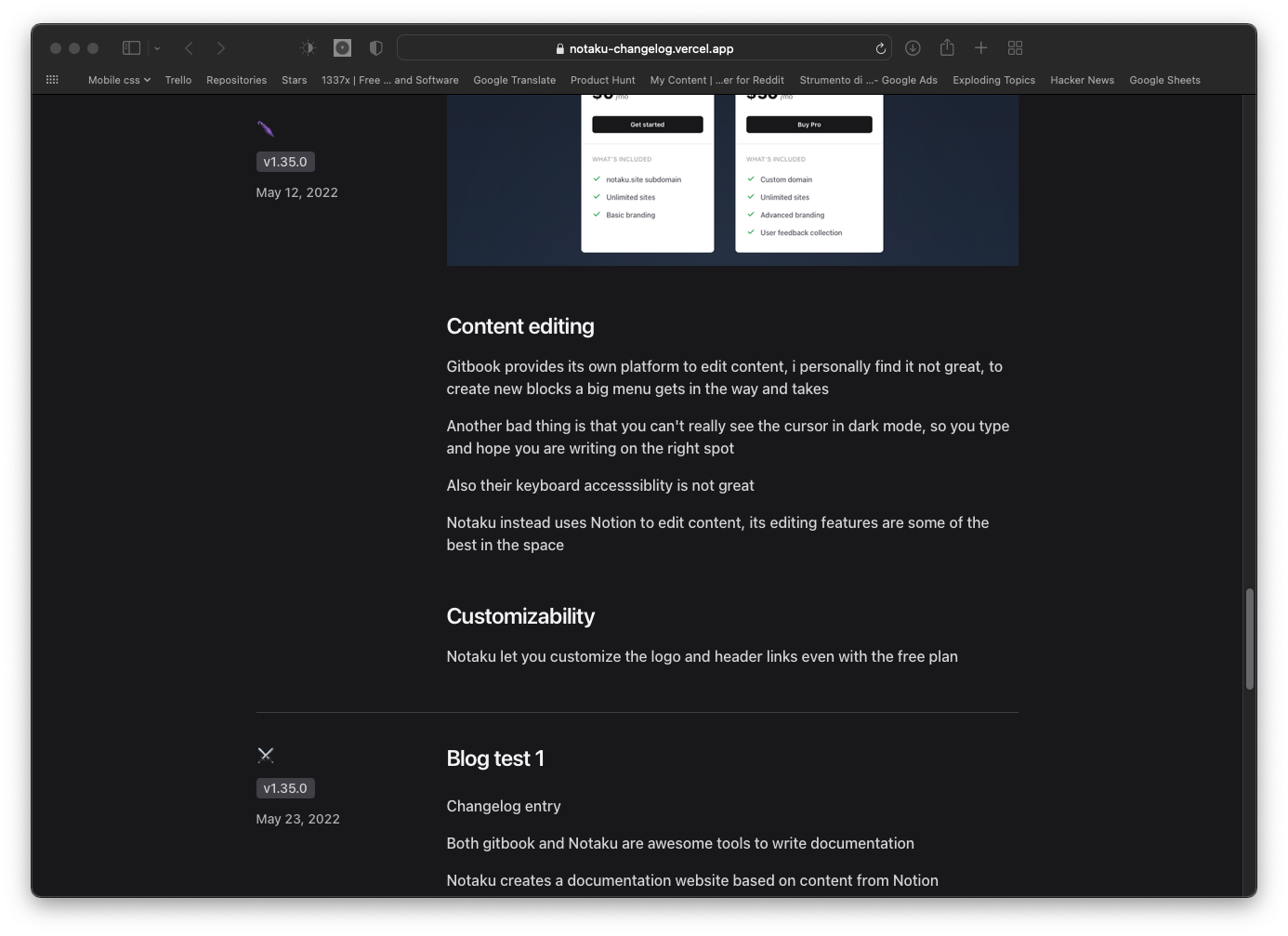
beta
4 years ago
Now Notaku pricing is based on number of page views
This makes it possible to have a cheaper plan at 19$ a month for sites that don’t get a lot of traffic.
beta
4 years ago
Password protection is now available on Notaku
It’s perfect to protect private websites to create course content or anything with a paywall.
They work using a password you can distribute to your users.
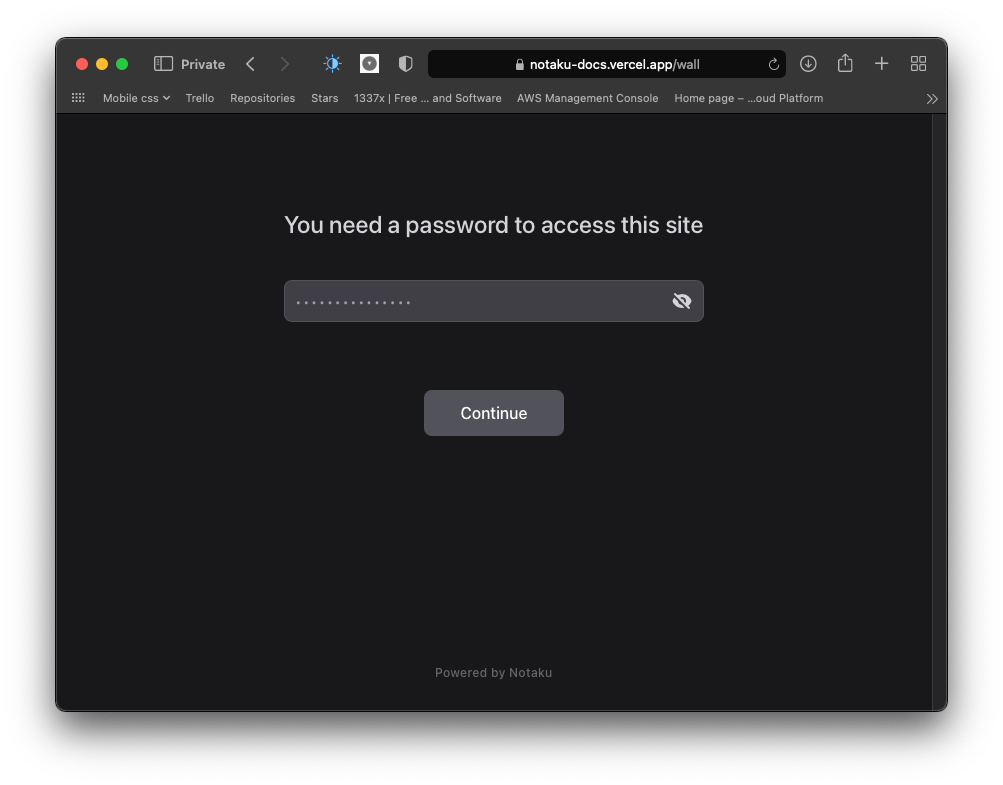
Powered by Notaku

